On the afternoon of October 22, National Assembly deputies discussed in groups the draft Law amending and supplementing a number of articles of the Law on Education ; the Law on Higher Education (amended) and the Law on Vocational Education (amended).
Focusing resources on key universities
National Assembly Delegate Nguyen Lan Hieu (Director of Hanoi Medical University Hospital) noted that the draft law clearly demonstrates the Politburo 's guiding viewpoint on not organizing a School Council in public higher education institutions.
He reiterated that when discussing this issue in the previous term, he had warned about overlapping functions, and in reality, many schools had difficulty operating this model.
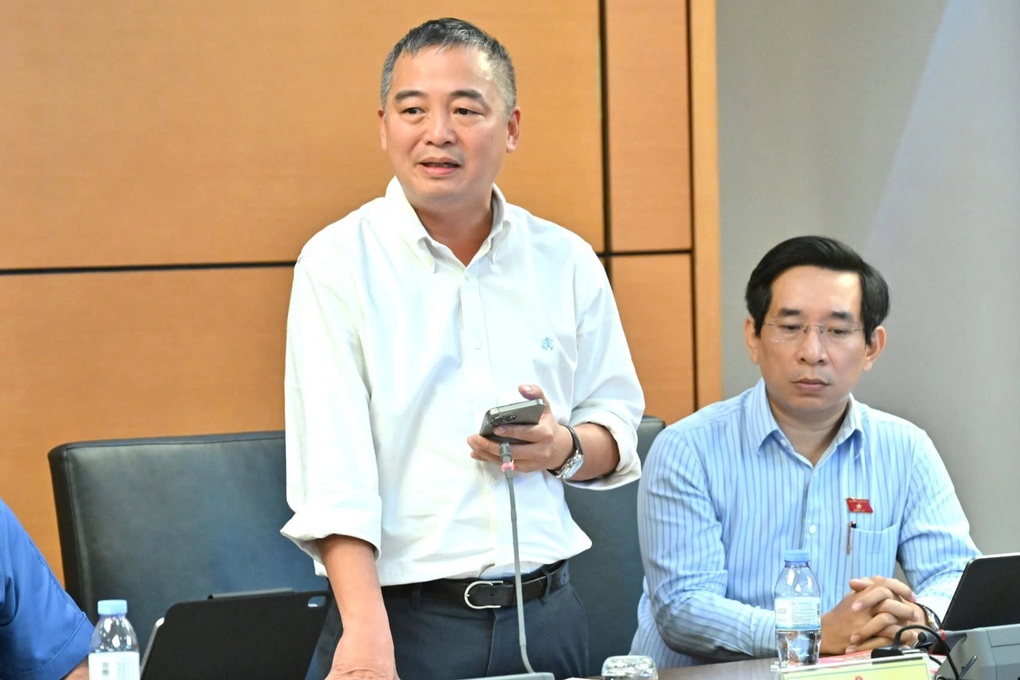
National Assembly Delegate Nguyen Lan Hieu, Director of Hanoi Medical University Hospital, spoke at the group discussion session on the afternoon of October 22 (Photo: Hong Phong).
“Previously, when talking about establishing a school council in a public educational institution, I emphasized that it needed to be considered very carefully, because in a school with both a school council chairman and a principal, who would be the leader and who would operate the institution?” Mr. Hieu commented that this was a very inappropriate issue.
Even, according to delegate Nguyen Lan Hieu, "there is no school where the chairman of the school board and the principal get along with each other, because the principal holds the money, the chairman holds the power, they cannot get along, so no school has been successful with this model."
According to Mr. Hieu, the recent Resolution 72 of the Politburo has eliminated this shortcoming. Therefore, the amendment of the law needs to be reviewed very carefully to avoid disrupting the organization of public educational institutions.
In addition, the Politburo also issued Resolution 71, stating the goal that by 2030, there will be at least 8 higher education institutions in the top 200 universities in Asia and at least 1 in the top 100 universities in the world. To make this goal feasible, delegate Nguyen Lan Hieu proposed adding specific development policies for key national higher education institutions to assign tasks and focus development resources.
“In fact, we can achieve this goal if we concentrate our resources. Other countries always have leading universities, but we are moving forward in a horizontal line, everyone wants to be the best, so in the end, no one is the best,” said delegate Hieu.
He emphasized that resources must be concentrated on 8 key schools selected by the Government, not allowing schools to be autonomous.
Particularly for higher education institutions in the field of health sciences, especially those training in general medicine and specialized medicine, Mr. Hieu proposed a policy of investing in and developing a chain of excellent practice hospitals, becoming leading hospitals in training high-quality medical staff, treating difficult diseases, developing scientific research and transferring technology.
The Director of the University of Medicine Hospital pointed out that there are currently many universities but no practice hospitals, most of them have to rely on or send students, so there are many shortcomings. The development orientation, according to the delegate, should be similar to other countries, where large hospitals are all attached to universities.
Regarding the residency training model, the Director of the University of Medicine and Pharmacy Hospital said that although the Ministry of Health has spoken out many times, this special post-graduate training model has not yet been completed.
“In the past, we received a subsidy of 2-3 million VND/month, but now there is none. Even resident doctors have to pay high tuition fees, an average of about 74 million VND/year,” delegate Lan Hieu stated the reality.
Emphasizing that resident doctors are the most important human resource of the current and future health system, the Director of Hanoi Medical University Hospital recommended that there should be a special mechanism in training resident doctors, specifically exempting tuition fees and providing a budget to pay salaries for this team, similar to international practice.
The paradox of "concern about quality but very high output"
Chairman of the Delegation Work Committee Nguyen Thanh Hai shared the paradox that many people are concerned about the quality of education but the quality of output is very high.
Similarly, in terms of ethics, 90% of students are ranked as good but school violence still occurs, even in cases that lead to students losing their lives. Ms. Hai suggested reviewing student discipline with the highest level being just writing a self-criticism, with such a light level of discipline, students will not be fully aware of their violations and shortcomings in order to correct them.
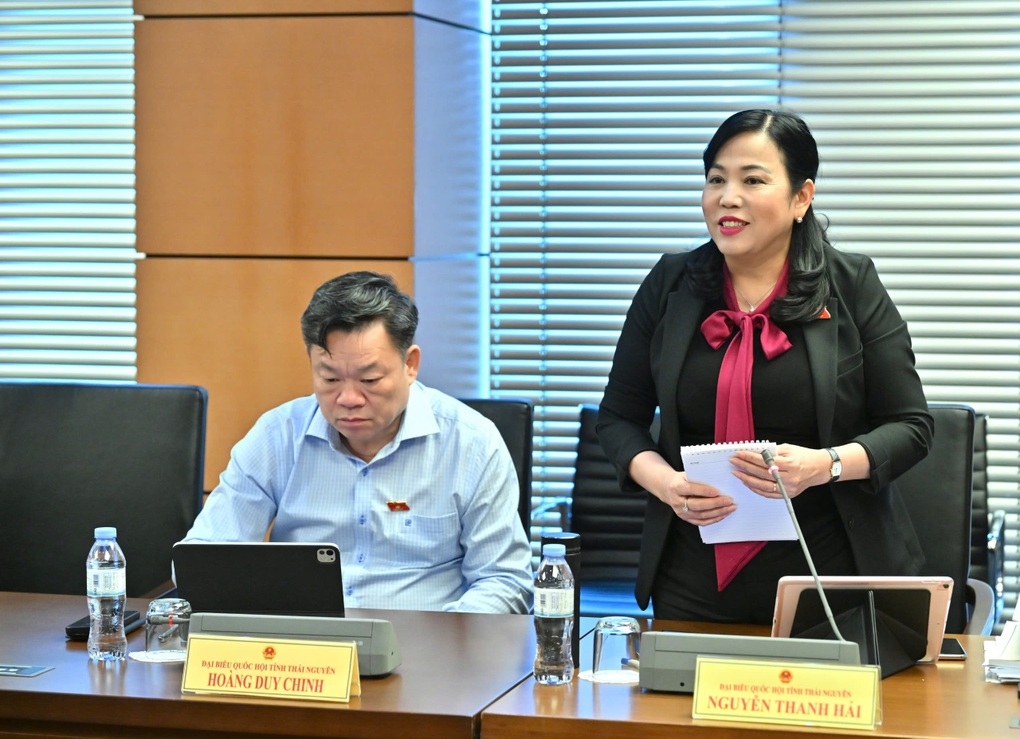
Chairman of the Delegation Work Committee Nguyen Thanh Hai (Photo: Hong Phong).
Another inadequacy pointed out by the Chairman of the Delegation Affairs Committee is the widespread training in health-related fields. Commenting on the phenomenon of an explosion in the number of schools and students trained in health-related fields, Ms. Hai cited the number of 20 new schools opening in the 2015-2020 period, with an annual increase of 15-20% in the number of students in health-related fields.
“Previously, the entrance requirements for medical schools were very strict, but now they have been loosened. With such a large number, can we ensure enough hospitals for practice, because in the medical field, practice is very important,” Ms. Hai questioned.
Source: https://dantri.com.vn/thoi-su/de-xuat-mien-hoc-phi-chi-ngan-sach-tra-luong-cho-bac-si-noi-tru-20251022164701787.htm








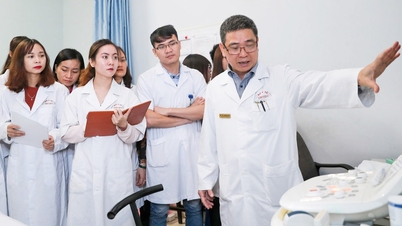

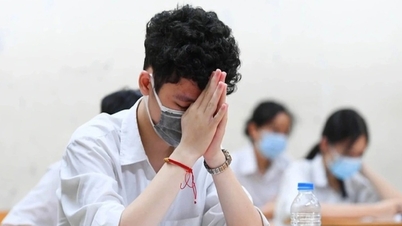
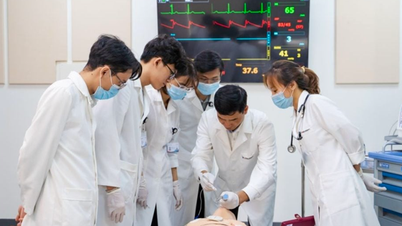



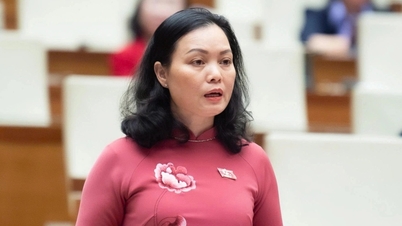
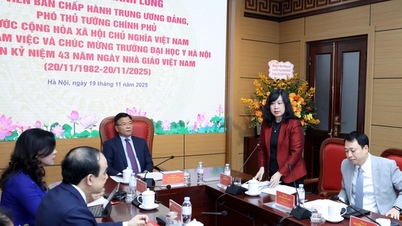

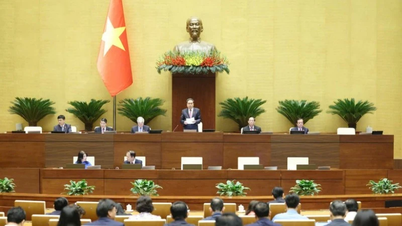



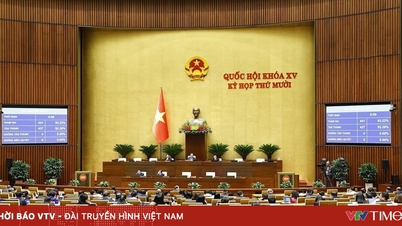

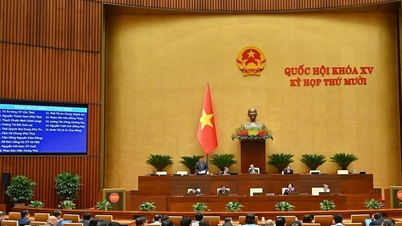

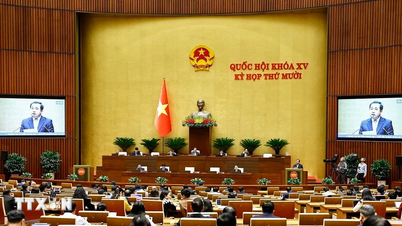














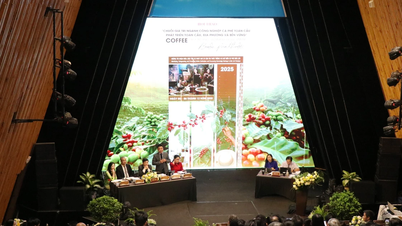





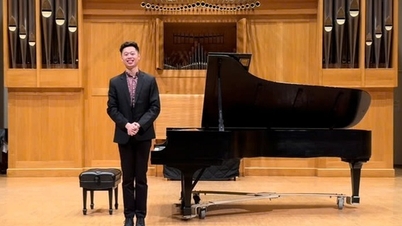
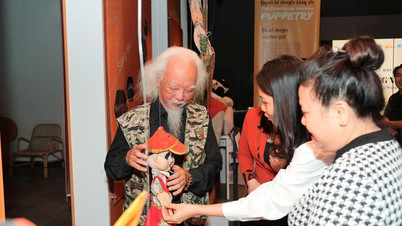

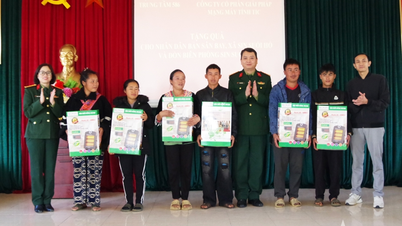

















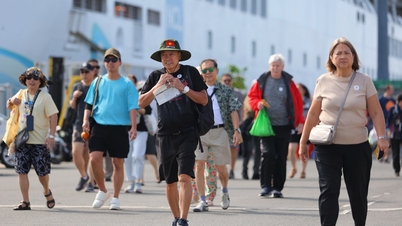











































Comment (0)